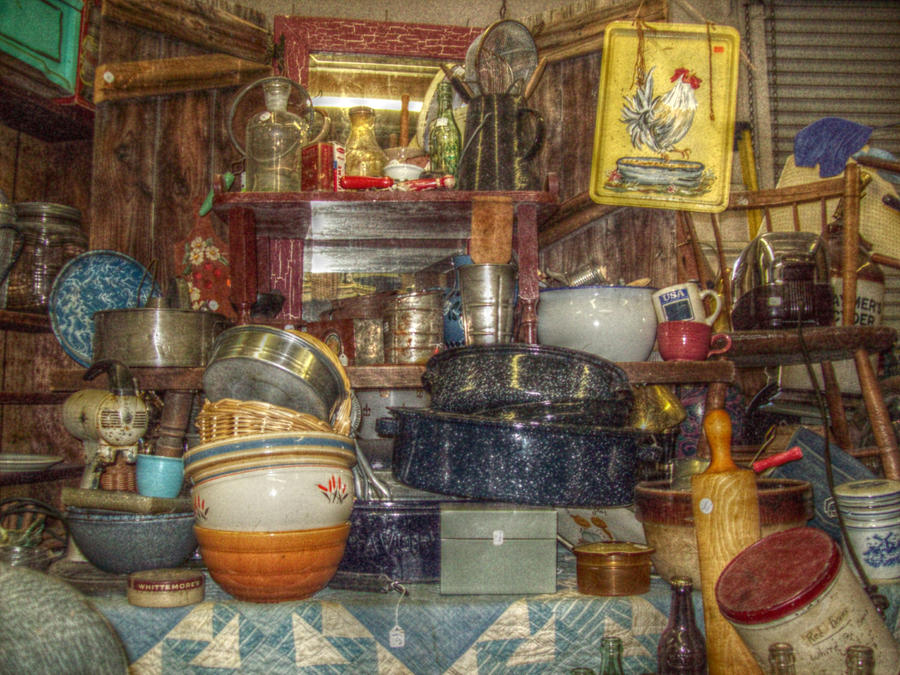- Sande Boritz Berger
- [SWP: Behind the Book] Ghosts In the Kitchen

My debut novel, The Sweetness ( pub. date Sept. ’14) has known several starts and stops, and even a few disguises…something I realized only after I finally wrote the words "The End." There were short stories that grew into long, sweeping scenes, meandering like a willow needing to be trimmed. Yet the true beginning of the writing process happened decades before, when, as a child, I went about collecting information, just as I might collect dolls, or stamps, or foreign coins. Though I was innocent then, and completely unaware, there was one special place I have always remembered─a place that would become my most important character.
Until I was seven, and before my mother was about to give birth to another boy, her third child, we lived across the street from my grandparents’ house in a lush and busy section of Brooklyn. While our soon-to-be family of five lived cramped in a one-bedroom apartment, my grandparents’ home─a Spanish-style stucco─gleamed like a castle behind high walls of privet, always trimmed to perfection. Keeping watch and perched upon the terracotta steps that led to the front porch were two sculptures, lions made of white marble. If you happened to glance up to the second floor, you’d notice the Tiffany glass windows, cut in diamond-shaped patterns and etched with red roses. But nothing was visible through those windows─neither the sun or the sky─which made the rooms upstairs appear mysterious and dark.
My grandparents arrived in America from Lithuania around 1915, soon meeting at a dance in Philadelphia where, supposedly, Nana stole Papa’s handkerchief right before he asked her to dance. While their first house was more modest, the house on Ave T was spacious enough for Papa’s two sisters and brother, Nana’s brother, and my grandparents’ two American-born children, one of whom was my mother. Most of their block was made up of Jewish immigrant families who had been lucky enough to escape Hitler before the terrors of WWII. People kept to themselves, protecting their privacy in a freer but often strange new land.
Most days my mother picked me up from my elementary school, and because it was just a few blocks from my grandmother’s house, often we’d stop in to say hello. Those visits, though brief, seemed to fill a huge void in me, some buried longing to connect, to see and be seen, but mostly to hear the welcoming chatter of my two unmarried aunts, Nana, and my mother, who in my memory are all fixed in one place─the jade and white spacious kitchen. But before finding them busily shuffling about in their flowered housecoats, we’d walk through the long foyer and its rich, velvety darkness past mirrors and wall sconces with crystal droplets that reminded me of ice. At the first landing that led upstairs stood Big Ben, the grandfather clock whose face scared me because I’d imagined a mouth and two eyes that were actually sections of the world map. Sometimes, I wondered what Big Ben knew, or overheard, because most of the time when I was around these women, they spoke only Yiddish, which they began the instant I widened my eyes─hearing, perhaps, about an illness or worse, a death, or the more common expressions of scorn for someone having done someone wrong. Judgment was huge in my family, something I was to realize much later on.
Soon after our arrival, I found my place on one of the cold metal chairs beside my grandmother, where my mouth was stuffed with samplings of that night’s dinner. My favorite was a tasting of chickpeas that had been coated in paprika and pepper before being fried. This dish never made it to the table, and the chickpeas were so spicy that a glass of seltzer was needed to wash them down. Then a too-hot Matzo ball juggled around my tongue, while the women, expressions strained, warned me to be careful. Careful? It was already in my mouth…what more could possibly happen? Though I had to use the bathroom, I was always afraid to leave that kitchen; I didn’t want to miss a thing. Not one word, even those spoken in that strange, funny language. My mother acted differently around her mother and her two unmarried aunts; she seemed very sure of herself, more than she ever did at home. The women doted on her, especially when she was pregnant. She fit the role well, as if she were royalty, and my aunts, her servants, intent on earning their keep.
Sometimes I was ushered to the tiny bedroom off the kitchen and told to take a nap, most likely to prevent me from hearing a not-for-children’s-ears discussion. But lying on the floor, I would flatten my body, and through the crack at the bottom of the door I'd watch their tiny feet hustle about, their voices rising and falling with the clatter of porcelain pots and steamy aromas filling the kitchen. I loved that little room with its single bed against the wall, and one dresser filled with mysteries begging to be uncovered. There were miniature perfume bottles, embroidered handkerchiefs, old cookie tins filled with spools of colorful thread and needles, tiny spikes stuck into a red tomato made of satin.
Behind the wooden blinds, there was a small but dense garden of lilacs and peonies in springtime, and the promise of lady bugs in summer. Over the fence lived a tall boy named Donny…my first crush, and I would look for him whenever we passed his house, but he rarely was out in the yard. Donny was older and already driving a car.
Though I tried really hard to nap, there were too many things to distract me, and soon I smelled my grandfather’s (Papa) cigar smoke as it wafted under the door. Home from his work in the city, his voice bellowed over the others. Their responses to whatever he told them were layered in many different tones, like the major and minor keys of a piano.
For a long time once, I sat looking through a box of photos. There were people who looked familiar, and some I didn’t know. No one looked happy in these pictures. It was as though they wanted to escape, but to where? When I looked closer, I recognized my aunts. They were much younger there, their arms around the waist of a tall, elegant woman wearing a floppy hat. I wanted to bring the photo into the kitchen to ask who this was, but then they’d know I’d been snooping, not sleeping. Finally, I opened the door, slowly, and noticed how everyone’s words froze mid-sentence. My grandfather’s loud and jovial greeting started the action again. He picked me up and then put me down, mumbling about his poor old back. On my thumb he slipped the gold paper band from his cigar. Then my mother said what she always said at the end of our short and cherished visits:
“Come on now…it’s time to go home.” Outside, a police officer riding a tall black horse tipped his hat to my mother. I watched her fluff out her long red hair and smile her most beautiful smile. We walked faster to get across the busy street, while my mother, looking straight ahead, tugged harder at my hand.
Writing Status Badges












Writing Status Badges












Featured Members (7)
Writing Status Badges















































Thanks so much for reading and your kind comments.
Beautiful and full of life!
My favorite memoirist. Recalls every nuance, every joy and sadness, fear and insecurity, and for me, shows it so I am taken back to a similar place or time. Wonderful piece, again!!